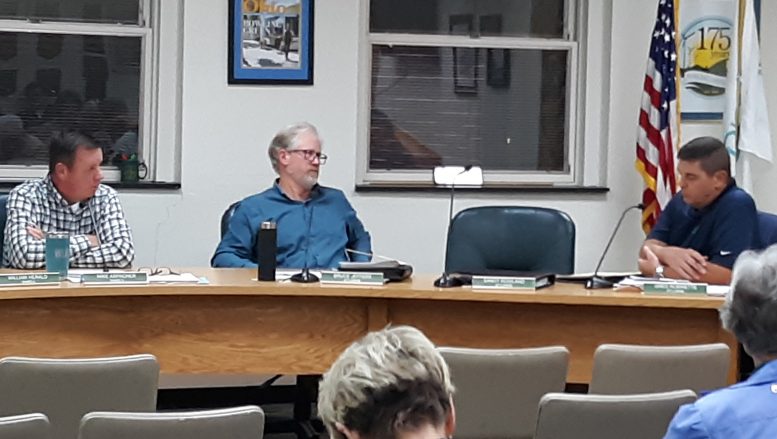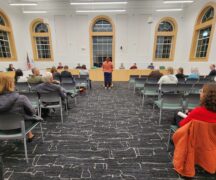By JAN LARSON McLAUGHLIN
BG Independent News
Bowling Green officials are trying to crack down on lousy landlords without making responsible landlords pay the price.
On Monday evening, the finance committee of Bowling Green City Council met to talk about housing safety in the city and the possibility of setting up some type of rental registration.
Council member Bruce Jeffers began the meeting by reading a statement.
“The safety of housing in Bowling Green has always been a matter of public and private concern. A mandatory inspection program was considered 10 or 12 years ago, and was set aside for a variety of reasons,” Jeffers said.
In the last six years, housing quality was addressed in the city’s Land Use Plan and the Community Action Plan.
“There is some feeling that the overall quality of aging houses is declining,” he said. “Many older houses have been converted to rental units, often subdivided and sometimes having had additional rooms attached.”
Unlike some other college communities in Ohio – like Athens, Oxford and Kent – Bowling Green has not established a voluntary or mandatory rental inspection and registration program.
The Community Action Plan discussed the rental registration program in Amherst, Massachusetts, which requires an annual self-inspection by landlords with a fee of $100.
Instead, the city has relied on various local agencies to respond to housing problems when renters reach out for help. Those agencies include the Wood County Health Department, the Wood County Building Inspection Office, the Bowling Green Fire Division, and the city code enforcement office.
Jeffers voiced concern that any type of formal inspection program would add another layer of bureaucracy, since many landlords already keep up their properties. He suggested the city look for a way to help less motivated landlords “to do the right thing,” without imposing an undue burden on responsible landlords.
The other two members of the finance committee – Mike Aspacher and Greg Robinette – agreed more research needs to be done before any action is taken.
“We need to figure out what we’re really trying to accomplish,” Robinette said.
“I have no doubt this is going to be an ongoing discussion,” Aspacher added.
Robinette suggested that information be gathered from the fire division, health department and building inspection office on the current problems. Jeffers has also asked Fire Chief Bill Moorman to collect information from fire divisions in other Ohio college communities.
“Where are the holes? Where are the challenges as a community?” Robinette said. “We have more questions than answers right now.”
Adding to the complexity of the issue is the concern from City Attorney Mike Marsh that a mandatory registration program would probably not withstand a legal challenge. A voluntary registration program could be made available to prospective renters, indicating which properties were “certified” as safe. But the question is – would that have any impact on the problem landlords.
“They feel very strongly that in general, they are trying to do the right thing,” Jeffers said of the landlords he has spoken with. “I think it’s in their own self-interest to take care of their properties.”
“Is there a way to get at the problem landlords without putting a lot of costs on good landlords?” he asked.
Last year, City Council began to develop a mandatory self-registration process of rental properties. City Planning Director Heather Sayler presented City Council with a detailed registration form that could be filed annually by landlords.
“Are we really able to get at the bad landlords with that process,” Jeffers said. “They don’t give a hoot about that.”
Aspacher suggested that the best process may be to try a voluntary registration first – especially given the fact that Marsh said the mandatory route would be unenforceable.
“If we’re going to do something, I much prefer pursuing a voluntary one,” Aspacher said.
Aspacher also expressed concerns about a mandatory registration being viewed as a punitive process against local business owners. He suggested some incentives be devised that will result in more participation by landlords.
Aspacher stressed that he is not denying the fact that housing issues exist in Bowling Green.
“I think it’s important for all of us to really honestly acknowledge the fact there are a number of rental properties and owner occupied properties that are unsafe,” he said. “I don’t want anybody to think I am just burying my head in the sand.”
Jeffers said he is sensitive to the fact that he is leaving council at the end of the year – and his replacement, Neocles Leontis, has firmly stated his desire to create a mandatory registration and inspection system for rental units.
“I’m concerned that it doesn’t look like going out the door I’m trying to impose my thoughts,” Jeffers said Monday evening.





